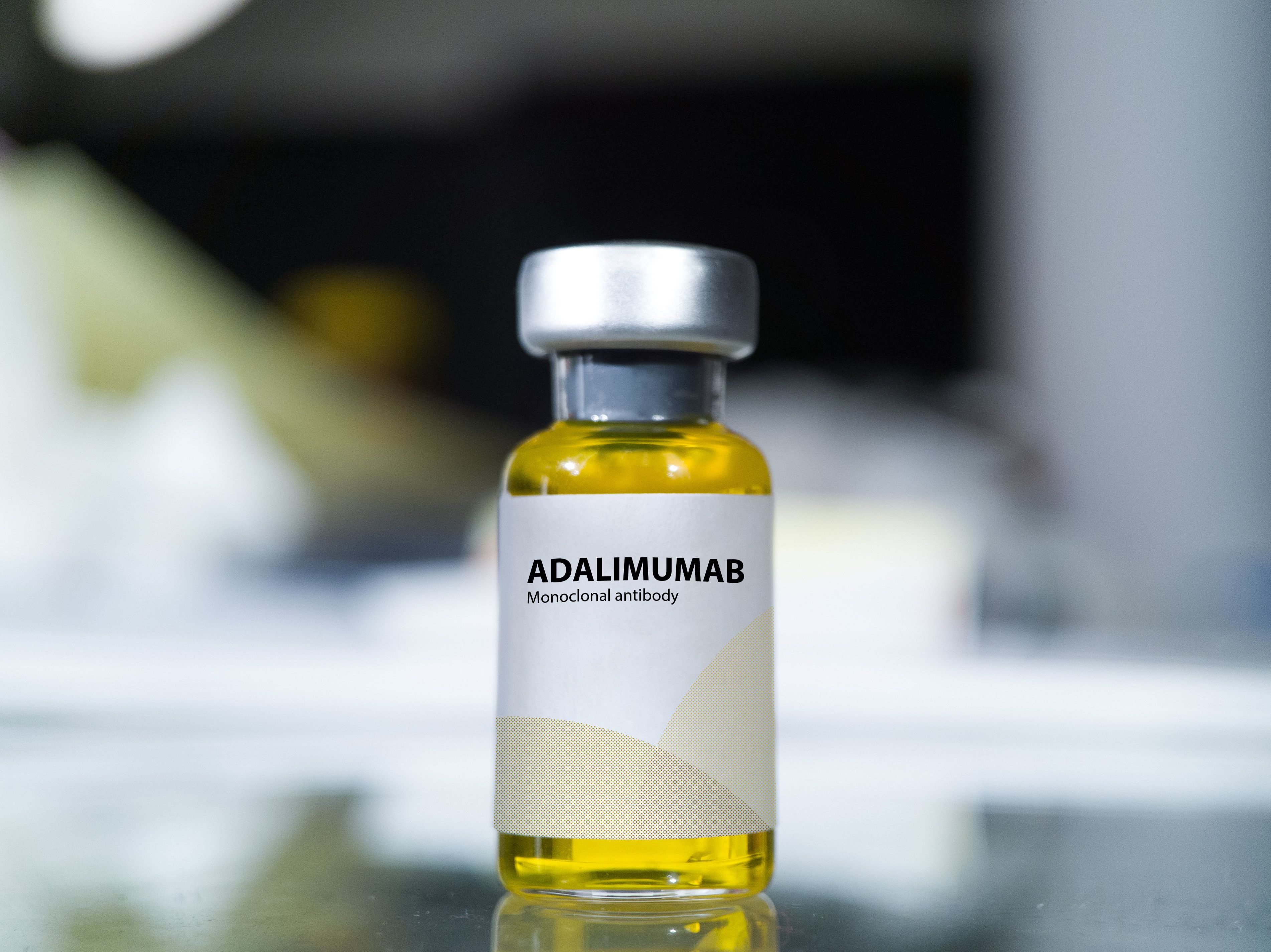- Case-Based Roundtable
- General Dermatology
- Eczema
- Chronic Hand Eczema
- Alopecia
- Aesthetics
- Vitiligo
- COVID-19
- Actinic Keratosis
- Precision Medicine and Biologics
- Rare Disease
- Wound Care
- Rosacea
- Psoriasis
- Psoriatic Arthritis
- Atopic Dermatitis
- Melasma
- NP and PA
- Skin Cancer
- Hidradenitis Suppurativa
- Drug Watch
- Pigmentary Disorders
- Acne
- Pediatric Dermatology
- Practice Management
- Prurigo Nodularis
- Buy-and-Bill
News
Article
Adalimumab (Humira) Biosimilar Well-Received By Patients Following US Launch
Author(s):
In January 2023, adalimumab-atto became the first biosimilar product available for the reference product adalimumab.
Soni's/Adobe Stock

Adalimumab (Humira) biosimilar adalimumab-atto (Amjevita) was well-received during its initial launch at one US-based health care system, according to a poster presented at the American Society of Health-System Pharmacists 2023 Midyear Clinical Meeting and Exhibition.
In January 2023, adalimumab-atto became the first biosimilar product available for the reference product adalimumab. Previous patient surveys have identified concerns around switching from a reference product to a biosimilar product, in part due to the potential for changes in disease control, adverse effects, and cost.
Over a 2-month period (May-June 2023), investigators conducted a telephone survey of patients at the Kaiser Permanente Southern California and Colorado regions to evaluate patients’ perceptions of the effectiveness of adalimumab-atto, observed differences between the biosimilar and reference product immediately after injection, and product preference. Patients had been diagnosed with rheumatoid arthritis, ankylosing spondylitis, or psoriatic arthritis and switched from adalimumab to adalimumab-atto.
The study cohort included 148 patients who completed the telephone survey (mean age, 57±14 years; 66.2% women; 58.8% White; 30.4% had Medicare prescription coverage). Median reported adalimumab treatment duration prior to the switch was 3.5 years (interquartile range, 2-8 years). A majority of those surveyed—88.2%—responded that they had “no concerns with losing control over their disease” after switching to adalimumab-atto. When comparing the 2 drugs, 50.5% of patients who had previously received citrate-containing adalimumab reported no differences immediately after injection; 36.1% reported that adalimumab-atto was “more favorable” in terms of injection site pain, stinging, and soreness. Among patients who had previously received citrate-free adalimumab, 56.9% reported no immediate injection differences, while 23.5% ranked adalimumab as more favorable.
A small percent of patients—just 10.6%—expressed concerns that adalimumab-atto “may be too expensive.”
Approximately half of respondents felt that they did not know enough information about the safety and efficacy of adalimumab-atto, and one-quarter of patients responded that they preferred the biosimilar to adalimumab.
“The biosimilar adalimumab-atto was well received during the initial launch phase in a US integrated healthcare system among patients with autoimmune arthritis who switched from the reference product,” the researchers concluded.
Reference
Pham CH, Delate T, Niu F, Le K, Hui R. Evaluation of patients’ perceptions on switching from reference product adalimumab to biosimilar adalimumab-atto. Presented at: American Society of Health-System Pharmacists 2023 Midyear Clinical Meeting and Exhibition; December 3-7, 2023; Anaheim, CA. Poster 4-072.
[This article was originally published by our sister publication, Drug Topics.]





